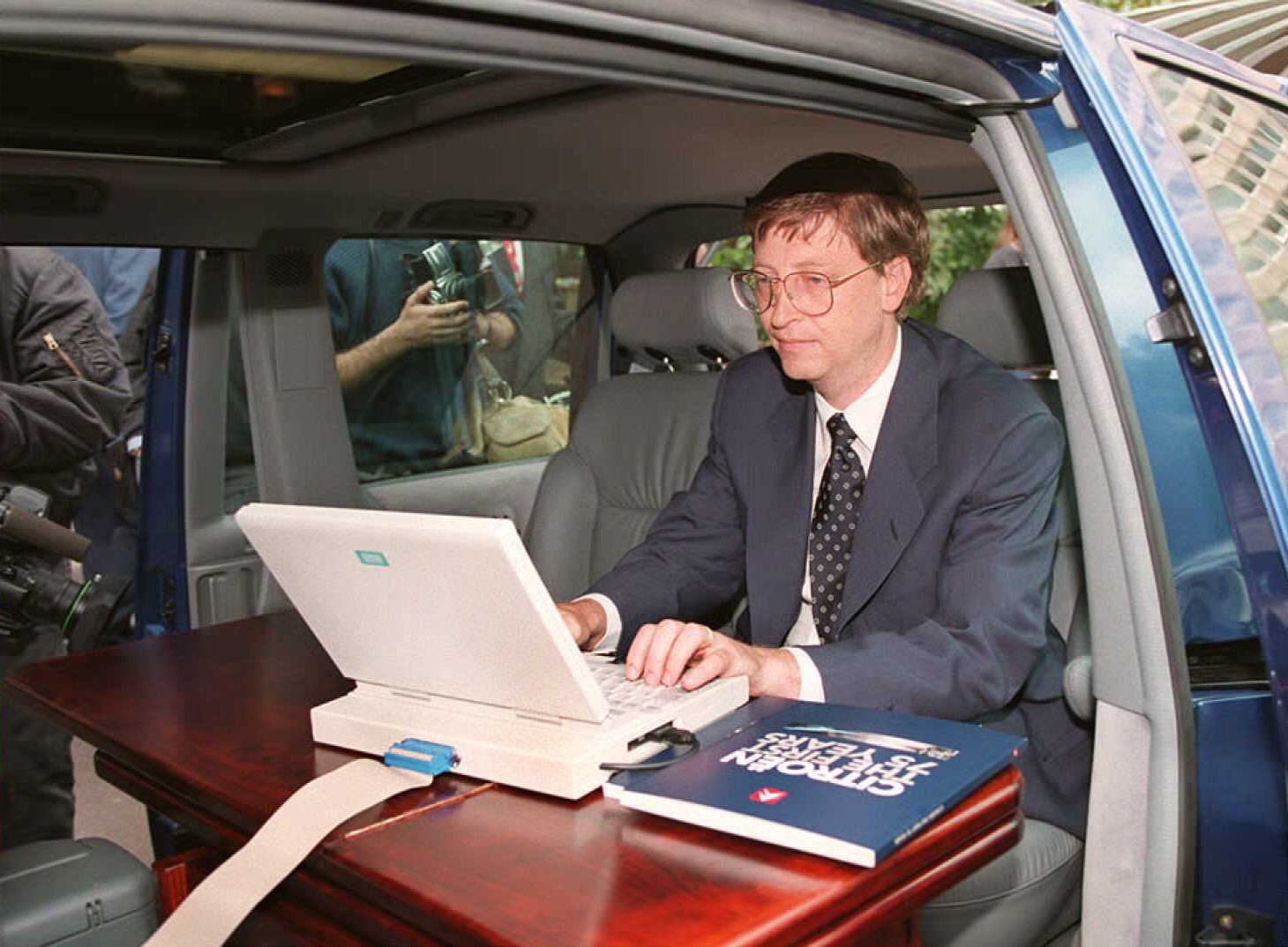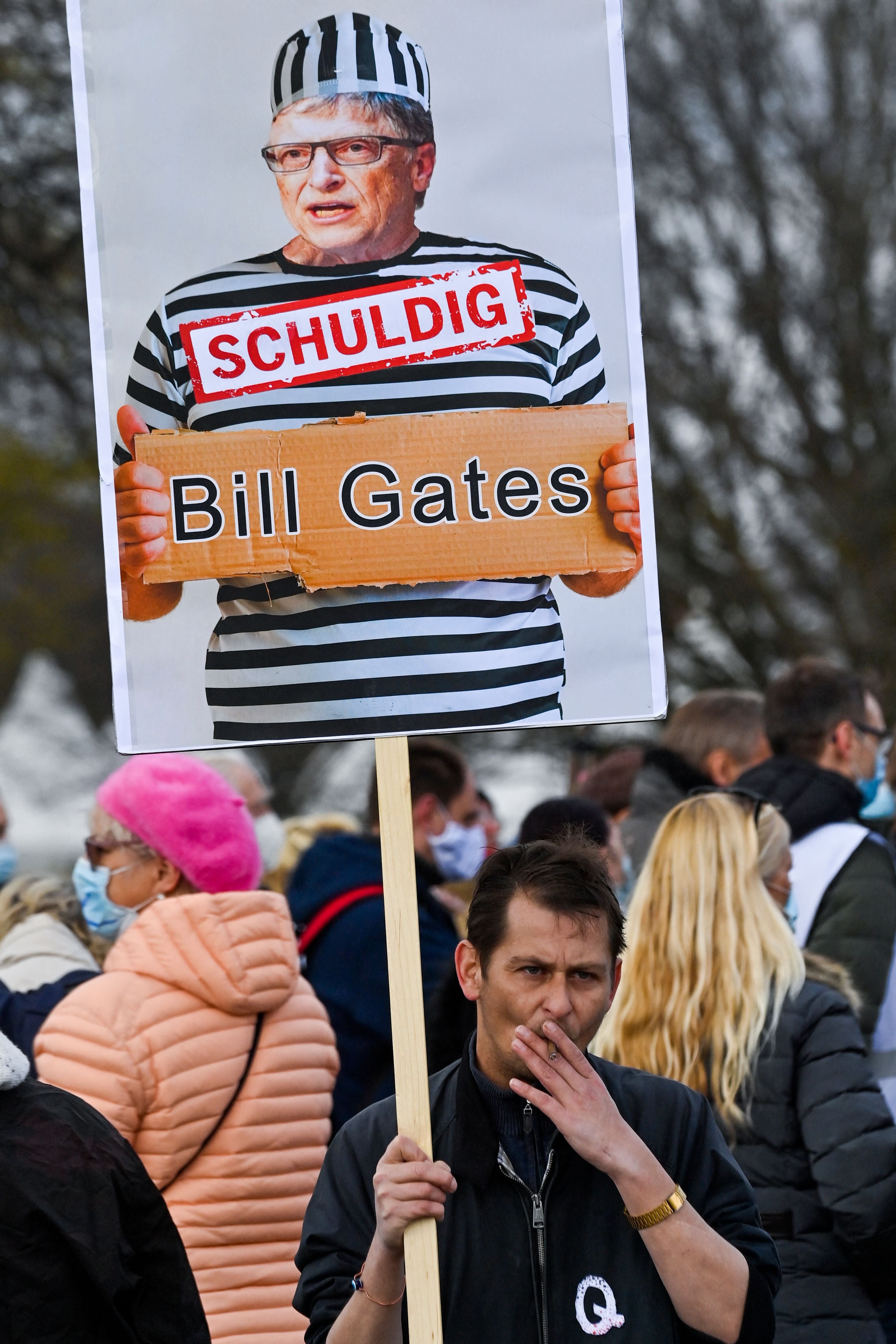Bill Gates: ‘If I designed the tax system, I would be tens of billions poorer’
The Microsoft co-founder and former world’s richest man has an optimistic take on AI, the environment and the future of the planet. He talks to Kevin E G Perry about his Netflix documentary series, the outlandish conspiracy theories about him, how he assesses his own legacy and whether he has too much money


Your support helps us to tell the story
From reproductive rights to climate change to Big Tech, The Independent is on the ground when the story is developing. Whether it's investigating the financials of Elon Musk's pro-Trump PAC or producing our latest documentary, 'The A Word', which shines a light on the American women fighting for reproductive rights, we know how important it is to parse out the facts from the messaging.
At such a critical moment in US history, we need reporters on the ground. Your donation allows us to keep sending journalists to speak to both sides of the story.
The Independent is trusted by Americans across the entire political spectrum. And unlike many other quality news outlets, we choose not to lock Americans out of our reporting and analysis with paywalls. We believe quality journalism should be available to everyone, paid for by those who can afford it.
Your support makes all the difference.Bill Gates didn’t see the conspiracy theories coming. The Microsoft co-founder built one of the most immense fortunes the world has ever seen with his foresight about the personal computer revolution, but he never predicted so many people would end up using those machines to cast him as a baby-guzzling, shape-shifting lizard who puts microchips in vaccines and plans pandemics for profit. “I thought the internet, with the magic of software, would make us all a lot more factual,” he laments, a wry smile playing beneath his black-framed spectacles. “The idea that we kind of wallow in misinformation… I’m surprised about that.”
Not that he’s complaining. “I don’t care how I’m perceived,” the 68-year-old assures me over a video call (Microsoft Teams, naturally) from his office in Kirkland, on the banks of Lake Washington, opposite Seattle. So even when “a woman came up and yelled at me that I implanted stuff in her, that I was tracking her” he took it in his stride. “My life is fantastic,” he says. “I’m the luckiest person alive, in terms of the work I get to do.”
Online misinformation troubles Gates not because of his personal reputation, but because it’s the rare problem he doesn’t have an answer for. In his new five-part Netflix documentary series, What’s Next? The Future with Bill Gates, the multibillionaire shares his optimistic vision of a world where scientific innovation rolls back climate change and eradicates deadly diseases while advances in artificial intelligence leave us all free to enjoy perpetual leisure time. It’s just the conspiracy theories that have him stumped. “I feel a bit like we’ve handed that to the younger generation,” he says. “Both to face up to and to figure out: ‘Okay, what’s this boundary between free speech and incitement to violence, or harassment, or just craziness that gets people not to take health advice?’”
Gates is well aware that one reason grotesque and outlandish rumours about him capture the public imagination is because, as he puts it in the show, “extreme wealth brings with it questions about your motives”. He stepped down as CEO of Microsoft in 2000 to establish the Bill & Melinda Gates Foundation with his then-wife, aiming to give away “lots of money to save lots of lives”, yet he remains one of the world’s richest people (seventh on the real-time Forbes list, with an estimated net worth of $138bn).
I ask him directly whether he can reassure me that billionaires do have the best interests of the rest of us at heart. His answer doesn’t exactly set my mind at ease. “I’m a huge believer in the estate tax [the American equivalent of the UK’s inheritance tax] and more progressive taxation,” he replies. “I don’t think we should generally generationally let families whose great grandfather, through luck and skill, accumulated a lot of wealth, have the economic or political power that comes with that.”
Not a ringing endorsement of the billionaire class, then. Would he agree that he is too rich? “If I designed the tax system, I would be tens of billion dollars poorer than I am,” he nods. “The tax system could be more progressive without damaging significantly the incentive to do fantastic things.”
Instead of voluntarily paying more tax, Gates has poured his wealth into projects he believes can raise the global standard of living. He has argued that he’s able to take risks on long-shot innovations that governments wouldn’t be prepared to gamble on and, in one episode of the new show, he presents some of the projects he’s funding to try and contain the climate crisis, such as investing in new types of nuclear reactors and finding ways to make cement that don’t emit CO2.
These sorts of innovations are essential because, as he explains, the majority of harmful carbon emissions are caused by generating electricity and the manufacture of things such as steel and concrete. I tell Gates that I find his analysis a little dispiriting simply because it reminds me how much my efforts to fly less often or waste less food pale into insignificance next to the vast structural changes that need to happen for society to reach net zero emissions.

“First of all, let me say individual actions do add up,” Gates argues back. “Whether it’s acts of kindness, or creating demand for green products, everybody who buys foods that are made with lower CO2 helps to drive the volume, which helps innovation eventually outcompete the dirty stuff. So whether it’s electric cars or heat pumps or sustainable aviation fuel, I wouldn’t completely discount that.”

Watch Apple TV+ free for 7 days
New subscribers only. £8.99/mo. after free trial. Plan auto-renews until cancelled

Watch Apple TV+ free for 7 days
New subscribers only. £8.99/mo. after free trial. Plan auto-renews until cancelled
It’s clear though that the major changes we need will have to be made by governments, so I ask if he finds himself sympathising with activists who feel driven to block roads, or throw paint on famous works of art, just to try to get politicians to pay attention? “I agree that sometimes extreme tactics are very helpful at keeping this issue on the agenda,” he says, “Because the big, big pain of climate change is way out in the future…” I cut in here – surely we’re already suffering the effects of climate change? Gates shakes his head. “In terms of everything but the countries on the equator, the massive GDP impacts are not in the near term, but over time,” he says, adding that he has no time for climate doomerism. “There’s no doubt that it’s super important and that we’re underinvesting in it, but the idea that we should despair, we should almost give up, that’s also not helpful to the cause.”
When it comes to the much-trumpeted benefits of AI, I confess to Gates that I struggle to share his optimism. When he describes a future where humans enjoy much more leisure, I picture CEOs instigating mass layoffs and telling us cheerfully to go enjoy our free time. AI might make businesses more efficient, but that doesn’t necessarily improve the lot of those of us who have to work for a living.
“Well, work weeks have gotten shorter,” Gates tells me confidently, while I make a mental note to let my boss know I’ll be finishing early. But he takes my point. “I will admit that saying that through government policies we will take this extra productivity and we will spread it around properly, at a time when trust in government to do basic things is so low… statements like that cause people to raise their eyebrows, but there is no other answer.”
Gates argues that, as with climate mitigation, we will need governments to rein in corporations and restructure society to deal with the myriad effects of AI. “As society becomes more productive, to make sure that those benefits are shared by the many, not just in the rich countries, but globally, it takes government involvement,” he says. “Philanthropy alone or well-meaning people alone can’t do that. So it’s about picking politicians that see the benefits of AI and think about what that means for the tax structure and having economists who are really looking at this. I do think that’s starting, and I think we have 10 to 20 years before the productivity benefits are so gigantic that you really do have to reshape taxation and work-week policies in a profound way.”
As Gates sees it, the coming AI revolution will reshape society more thoroughly than any previous leap forward in human history. “There’s no upper limit to this technology,” he argues. “At least with tractors we knew we’d have less farmers, but there are a lot of other human needs. In those days we didn’t realise, as we got richer, how many restaurants or psychiatrists we would end up needing.”

In comparison to AI, Gates says the personal computer revolution was “in some ways uncontroversial”. When Microsoft was founded in 1975, their idea of putting a computer in every home sounded like a pipe dream. Now there’s one in every pocket. Gates helped transform the world during that period, but he says the philanthropic work he’s been focused on for the past 16 years has been “profounder”.
“If I hadn’t been part of the personal computer revolution, it would have happened,” he points out. “Would it have happened a year later or something? Who knows? But not super delayed, whereas when it comes to malaria, malnutrition, women’s contraceptives, sadly, it’s a strange comment on the world, I don’t think even a decade later those things would necessarily have happened. It’s hard to do the ‘what if’, but if you run the world with me and without me, and you subtract the two, the philanthropy is a much more significant thing in terms of making things that are equity-oriented happen dramatically sooner than they would have otherwise.”

Despite what all those ghoulish online conspiracies would have you believe about Gates, his impact on global health has been hugely significant and undeniably admirable. In 2000, 10 million children under five died every year. Today, that number is down to under 4.6 million deaths each year. The work of the Gates Foundation has drastically reduced the number of people who die from preventable diseases including malaria, polio and diarrhoea, although Gates insists that he’s not in it for personal acclaim. “The dream is to get rid of these diseases so nobody remembers what malaria was or what polio was,” he says. “That’s the ultimate success.”
As remarkable as Gates’s achievements in global health have been, and as hopeful as we might all be that his investments can have a similarly positive impact on climate change, it does raise the question of what happens after he’s gone. The Gates Foundation is mandated to wind up 20 years after his death, and I point out to him that the new generation of billionaires who’ve overtaken him on the Forbes list, the likes of Elon Musk, Jeff Bezos and Mark Zuckerberg, seem rather less interested in spending their vast fortunes on malaria nets, polio vaccines or climate solutions.
Gates says he tries to promote philanthropy to the ultra-rich, but he acknowledges that’s not a long-term fix. “The big work still has to be done by government,” he says. “Philanthropy is not a substitute for government. Making sure everybody’s educated, has food, has shelter – it’s the government who’s going to create that safety net.”
That’s the funny thing about Bill Gates’s optimistic view of the future: it requires taking a lot of power out of the hands of billionaires like Bill Gates.
‘What’s Next? The Future with Bill Gates’ is on Netflix from 18 September
Join our commenting forum
Join thought-provoking conversations, follow other Independent readers and see their replies
Comments